第101章
Towards the end of August, our National Assembly in its constitutional labours, has got so far as the question of Veto: shall Majesty have a Veto on the National Enactments; or not have a Veto? What speeches were spoken, within doors and without; clear, and also passionate logic; imprecations, comminations; gone happily, for most part, to Limbo! Through the cracked brain, and uncracked lungs of Saint-Huruge, the Palais Royal rebellows with Veto. Journalism is busy, France rings with Veto. 'I shall never forget,' says Dumont, 'my going to Paris, one of these days, with Mirabeau; and the crowd of people we found waiting for his carriage, about Le Jay the Bookseller's shop. They flung themselves before him; conjuring him with tears in their eyes not to suffer the Veto Absolu. They were in a frenzy:
"Monsieur le Comte, you are the people's father; you must save us; you must defend us against those villains who are bringing back Despotism. If the King get this Veto, what is the use of National Assembly? We are slaves, all is done."' (Souvenirs sur Mirabeau, p. 156.) Friends, if the sky fall, there will be catching of larks! Mirabeau, adds Dumont, was eminent on such occasions: he answered vaguely, with a Patrician imperturbability, and bound himself to nothing.
Deputations go to the Hotel-de-Ville; anonymous Letters to Aristocrats in the National Assembly, threatening that fifteen thousand, or sometimes that sixty thousand, 'will march to illuminate you.' The Paris Districts are astir; Petitions signing: Saint-Huruge sets forth from the Palais Royal, with an escort of fifteen hundred individuals, to petition in person.
Resolute, or seemingly so, is the tall shaggy Marquis, is the Cafe de Foy: but resolute also is Commandant-General Lafayette. The streets are all beset by Patrols: Saint-Huruge is stopped at the Barriere des Bon Hommes; he may bellow like the bulls of Bashan; but absolutely must return. The brethren of the Palais Royal 'circulate all night,' and make motions, under the open canopy; all Coffee-houses being shut. Nevertheless Lafayette and the Townhall do prevail: Saint-Huruge is thrown into prison; Veto Absolu adjusts itself into Suspensive Veto, prohibition not forever, but for a term of time; and this doom's-clamour will grow silent, as the others have done.
So far has Consolidation prospered, though with difficulty; repressing the Nether Sansculottic world; and the Constitution shall be made. With difficulty: amid jubilee and scarcity; Patriotic Gifts, Bakers'-queues;
Abbe-Fauchet Harangues, with their Amen of platoon-musketry! Scipio Americanus has deserved thanks from the National Assembly and France. They offer him stipends and emoluments, to a handsome extent; all which stipends and emoluments he, covetous of far other blessedness than mere money, does, in his chivalrous way, without scruple, refuse.
To the Parisian common man, meanwhile, one thing remains inconceivable: that now when the Bastille is down, and French Liberty restored, grain should continue so dear. Our Rights of Man are voted, Feudalism and all Tyranny abolished; yet behold we stand in queue! Is it Aristocrat forestallers; a Court still bent on intrigues? Something is rotten, somewhere.
And yet, alas, what to do? Lafayette, with his Patrols prohibits every thing, even complaint. Saint-Huruge and other heroes of the Veto lie in durance. People's-Friend Marat was seized; Printers of Patriotic Journals are fettered and forbidden; the very Hawkers cannot cry, till they get license, and leaden badges. Blue National Guards ruthlessly dissipate all groups; scour, with levelled bayonets, the Palais Royal itself. Pass, on your affairs, along the Rue Taranne, the Patrol, presenting his bayonet, cries, To the left! Turn into the Rue Saint-Benoit, he cries, To the right! A judicious Patriot (like Camille Desmoulins, in this instance) is driven, for quietness's sake, to take the gutter.
O much-suffering People, our glorious Revolution is evaporating in tricolor ceremonies, and complimentary harangues! Of which latter, as Loustalot acridly calculates, 'upwards of two thousand have been delivered within the last month, at the Townhall alone.' (Revolutions de Paris Newspaper (cited in Histoire Parlementaire, ii. 357).) And our mouths, unfilled with bread, are to be shut, under penalties? The Caricaturist promulgates his emblematic Tablature: Le Patrouillotisme chassant le Patriotisme, Patriotism driven out by Patrollotism. Ruthless Patrols; long superfine harangues; and scanty ill-baked loaves, more like baked Bath bricks,--which produce an effect on the intestines! Where will this end? In consolidation?